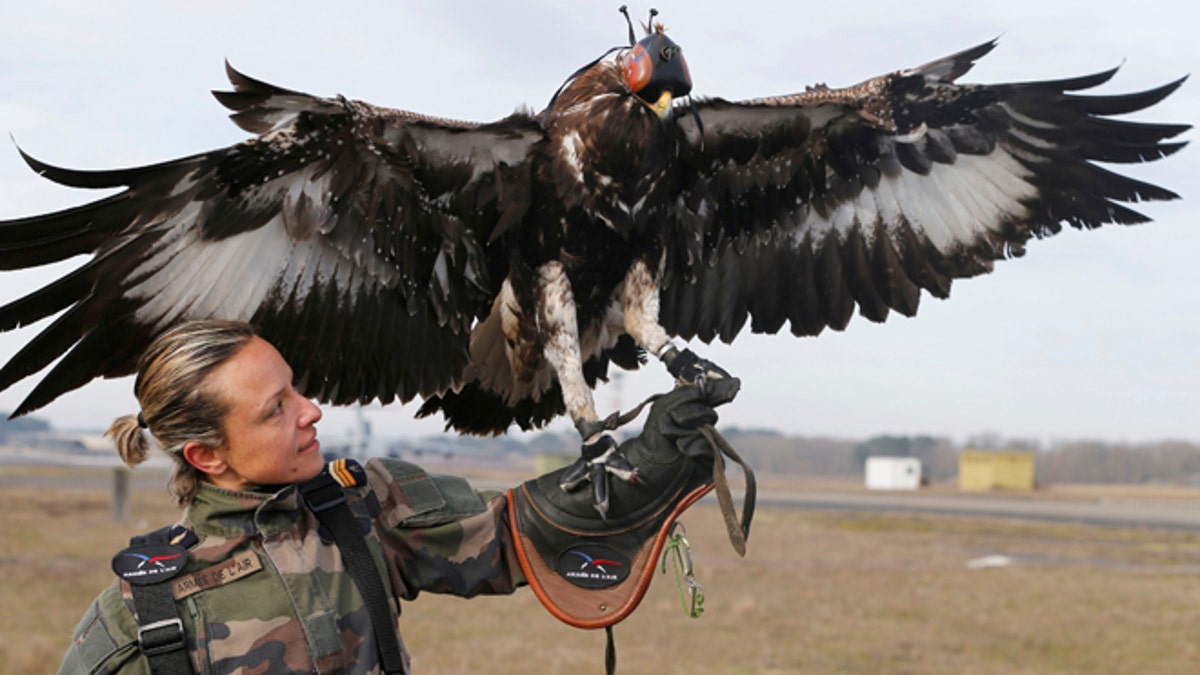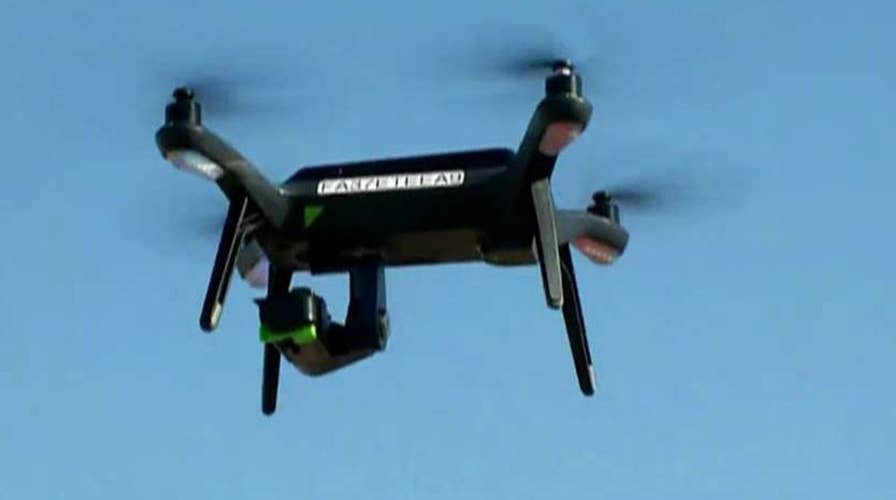FBI issues warning about terrorists with drones
A former special operations drone pilot tells Fox News that there is little the government can do against the threat of weaponized drones, as FBI Director Christopher Wray warns that such an attack on domestic soil may be inevitable.
A former elite drone pilot for U.S. special operations tells Fox News that the government is "just not ready" to defend against the threat of over-the-counter drones being weaponized to carry-out attacks like the one recently in Venezuela.
And while President Trump may have just signed a bill that could help bolster our defenses, the leaders of both the Department of Homeland Security and the FBI recently told lawmakers that the U.S. is already behind on the issue, and that a domestic attack using the kind of drones available to everyday consumers may be inevitable.
"Emerging threats are outpacing our defenses," Secretary Kirstjen Nielsen told the Senate committee on homeland security and government affairs on October 10, pointing to unmanned aerial systems (otherwise known as 'drones') as a "prime example."
"Unfortunately, outdated laws have prevented us from setting up the sophisticated countermeasures we need to protect significant national events, federal facilities, and other potential targets from an airborne menace," Nielsen added. What's more, she told lawmakers, DHS didn't even have the clear legal authority to neutralize potentially dangerous drones determined to be a threat until recently, or to even test what she called "the crucial countermeasures we need in real-world environments where the risks exist."
DHS was finally given that authority on October 5 when President Trump signed into law the new FAA Reauthorization bill. The legislation not only tackles issues like the amount of leg room on commercial flights, it also grants DHS the authority to monitor, track, seize, exercise control of, confiscate, or even destroy any drone it deems a threat to what they define as a "covered facility or asset."
That definition refers to any location identified as "high-risk and a potential target for unlawful unmanned aircraft activity," language that is considered overly broad by a variety of drone and civil rights activists.
Even with that new authority, FBI Director Christopher Wray told senators that "the FBI assesses that, given their retail availability, lack of verified identification requirement to procure, general ease of use, and prior use overseas, [drones] will be used to facilitate an attack in the United States against a vulnerable target, such as a mass gathering." A DHS threat warning updated in August 2018 reiterated the government's concerns that drones "may be capable of transporting contraband, chemical, or other explosive/weaponized payloads."
Brett Velicovich, a former special operations drone pilot who now advises private and government officials all the way up to the White House on how to defend against this type of threat, adds that even with the new authority granted by the president there isn't a whole lot the government can do. "The technology that exists now isn't capable of successfully taking down drones at the rate it needs to be, so [the bill] won't matter, but it's a good beginning." DHS did not respond to a request for comment on this assessment.

Brett Velicovich, a former special operations drone pilot, says the U.S. is unprepared to deal with the growing threat of commercially available drones being weaponized by bad actors.
Velicovich says the alleged assassination attempt on Venezuelan President Nicolás Maduro over the summer, in which two drones loaded with explosives detonated amid a military parade, was apparently carried out with the kind of technology available to everyday consumers. It was just last year that CENTCOM officials told Fox News U.S. and Iraqi soldiers were dealing with upwards of 30 encounters a week with non-military drones that had been weaponized by ISIS.
That, Velicovich argues, is the essence of the problem.
"The same stuff that's available to consumers is the kind of tech I wished I would've had in the military," Velicovich says. "In the course of simple development, [drone manufacturers] are creating things that defeat these millions of dollars of equipment that the government uses to help combat the problem, so it's a constant back-and-forth between government agencies that see the threat, and these manufacturers just trying to make money," he added.
Fox News was able to confirm that some of the best-selling consumer/commercial drones – which are widely available in stores and on the internet - are indeed capable of carrying enough weight to deliver payloads that could do serious damage.
The National Football League (NFL) is an organization that has first-hand experience with this issue, and the organization's president of security notes it could have been much worse.
Cathy Lanier, the senior vice president of security for the NFL & the former District of Columbia police chief, told lawmakers on September 13 about a particularly disturbing incident during which a drone not only penetrated stadium airspace, it also dropped leaflets all over a San Francisco 49ers crowd.
"We're all very fortunate that the drone... dropped just leaflets," Lanier warned.

Defending against the threat of weaponized drones is a problem that has produced a myriad of solutions, some more realistic than others. In this photo, a French army falconer works with a golden eagle as part of a military training for combat against drones in Mont-de-Marsan French Air Force base, Southwestern France, February 10, 2017. (REUTERS/Regis Duvignau, File)
Velicovich participated in a gathering organized by Interpol over the summer on this very issue, advising law enforcement from around the world on what he calls an immediate threat. He says it's heartening to see people finally waking up to a threat he's been warning about for some time, even if he believes some of their methods are questionable.
"I've seen everything, in France they're training bald eagles to go take down drones and in Thailand, police have drones with 10-20 foot nets," Velicovich says, "but these drones nowadays are so fast that things like nets are a joke."
In the end, Velicovich still thinks that drones are a force for good, and that they aren't going away anytime soon.
"You have to do it both ways. You have to talk about the dangers of it, but at the same time the benefits of drones well outweigh the risks," he says. "We'll see the day where there's a drone for every household."










































